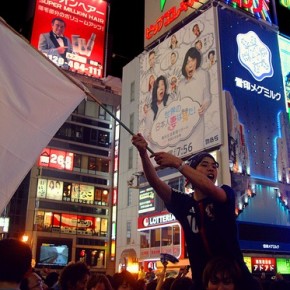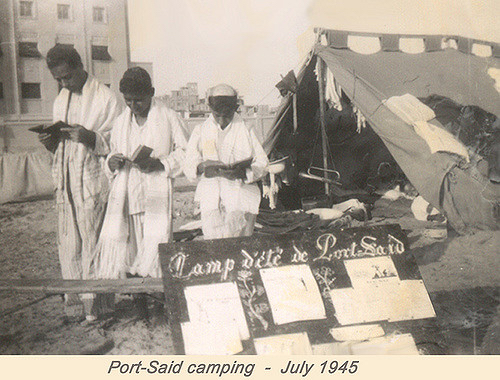You’ve heard it before. Supporters of the Arab Spring always say that Islamists “hijacked the revolution.” The statement gets repeatedly invoked in reference to the crises in Libya and Syria, where the revolts ended up fostering the rise of extremist groups, who dominate the resistance, today.
While it’s true that the liberal opposition to Qaddafi and Assad lost ground to jihadists, phrases like “hijacked the revolution” don’t tell the whole story. They ignore the fact that during the Arab revolts, various movements asserted their own visions of society, including jihadis. The fundamentalists simply prevailed.
The standard narrative has become that the Arab Spring unleashed a cosmopolitan demand for liberal values like republicanism and human rights, which was co-opted by Islamists and jihadists, before the return of military strongmen as a stabilizing force. This is true, to an extent (though it ignores that mainstream Islamists and jihadists frequently hate one another.) Assad has certainly used Islamic State to define himself against a civil war that he started, and General Khalifa Haftar appears to be using the threat of terrorism to justify launching a slow-motion coup in Libya. The mistake is that when we talk about “co-opting,” we are assuming that certain ideologies weren’t present in the initial revolts to begin with. This isn’t exactly true, and it ignores how popular desires for emancipation really exploded during the revolts, and continue to evolve.
The Arab Spring occurred because the complex alignment of social, economic, and political forces in the Middle East had illuminated the various limitations of existing governments. The result was that huge numbers of people sensed that their desires for social equality and political self-determination weren’t being met. The revolts quickly snowballed because protests at one end of the Middle East suddenly granted them permission to mobilize. In the process, they began projecting their desires on certain ideologies, which was done based on their power, influence, and realistic ability to deliver change.

From the outset, traditional Islamism was very strong, owing to how parties like the Muslim Brotherhood had an established underground infrastructure and well-connected backers in the religious middle class. Leftist ideologies were also present though, along with jihadist ones. All were vying for ideological dominance over the uprisings. Many activists presumed that they had an inherently cosmopolitan character that would naturally overpower and exclude jihadists like al-Qaida, as well as gradually draining energy from established Islamists like the Brotherhood. It turns out this was a bit naive. When democratic movements began to falter, owing to intense state backlash and their own indecisiveness and incompetence, regional paradigms started to shift, opening up the space for other ideologies to assert themselves.
This wasn’t true initially. It was the failure of parliamentary experiments, and the inability of progressive grassroots movements to provide a viable counter-narrative, that led to it occurring. That initial desire for emancipation that drove the revolts either turned into violent despair, or sought out a new constructive ideology in which to constitute itself. This shift has made itself manifest in a number of ways. For instance, relatively depopulated fringe areas are responding with new ideas about tribalism and decentralization, as seen in Yemen’s Hadramawt province. It has also allowed for the growth of movements like Islamic State, which capitalize on jihadism’s ability to mobilize both destructive instincts in terrorism, and constructive ones in Caliphate-building.
This isn’t “hijacking” though. There are new ideologies operating in the fallout of the Arab Spring, and they seek to present themselves as serious alternatives to existing political arrangements when it comes to more fully realizing promises of a free and just society. They just aren’t all liberal, and include a new generation of jihadists. However, there are even more, as we see channeled into the new popularity of Peshmerga Kurds due to their clashes with Islamic State, that simply want a movement that can overcome the authoritarianism of leaders like Assad, Qaddafi, and Haftar, as well as democracy as it is being practised by the current government in Baghdad. Until they are able to produce a new and compelling idea of how the future will look, though, jihadists will continue to press their own. And in the process, they will continue to drown out weaker and less brutal voices.
Photographs courtesy of Dying Regime. Published under a Creative Commons License.





